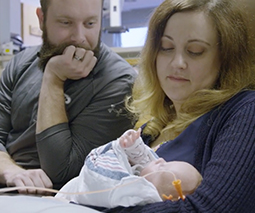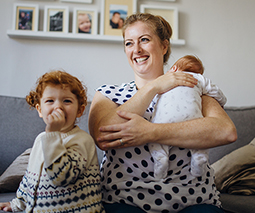Keen to be a surrogate or looking for one? Here’s what you need to know
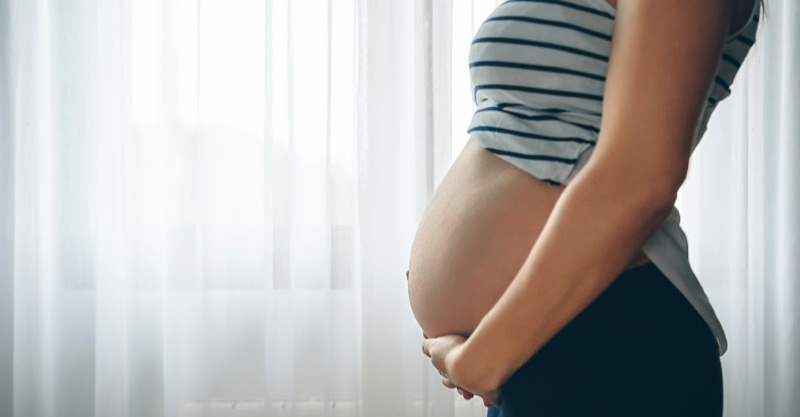
At the beginning of this year, Kim Kardashian had her third child via a surrogate – the latest in a long list of celebrities to have a baby this way. But what about us normal folks here in Australia? Is it that easy to use a surrogate, or be one for someone else? Here are the answers to ALL your questions.
What is a surrogate?
A surrogate is a woman who carries and gives birth to a baby on behalf of someone else. Traditionally a surrogate’s eggs were also used to conceive the baby, however, these days this is far less common with the surrogate being a gestational carrier instead – so not the biological mother of the child. What happens here is an embryo, which has been created using either sperm and eggs from the parents-to-be; donor eggs or sperm; or is a donated embryo, is transferred into the uterus of the gestational surrogate.
Why consider it?
In Kim Kardashian’s situation, she chose surrogacy for health reasons. Being diagnosed with pre-eclampsia and placenta accreta in her previous pregnancies meant carrying a third could put the health of her baby and herself at risk. Other reasons why individuals or couples may need or wish to use a surrogate include:
- Other health conditions which would make pregnancy life-threatening.
- Cancer treatments such as chemotherapy have led to fertility issues.
- Partial or no uterus or other reproductive organs (such as with a hysterectomy), or the uterus is unable to carry a baby.
- Recurring miscarriages or failed IVF attempts.
- A man wants to use frozen embryos he created with his deceased partner.
- Male same-sex couples or single males.
On the flip side, for those women who want to become gestational carriers, in Australia generally it’s because they enjoy being pregnant and simply want to help loved ones or strangers experience the miracle of birth and parenthood.
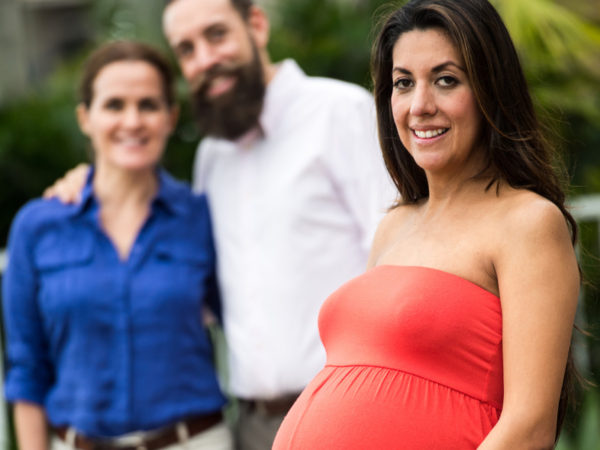
Australian laws
Unfortunately, the rules on surrogacy vary A LOT in this country depending on which state or territory you live in. One key area of consistency, however, is that unlike in America (where Kim and Kanye paid their surrogate a whopping $113,00 on top of her medical expenses), commercial surrogacy is illegal in Australia so the gestational carrier can’t be paid for her good deed. This is called altruistic surrogacy and only expenses relating to the pregnancy are allowed to be covered by the intended parents (including non-medical things such as babysitting for the carrier’s children when attending appointments). NT is the only area that’s a bit more relaxed, with no actual binding rules around surrogacy currently in place.
Additionally, in all parts of Australia, the surrogate has the legal right to change her mind about giving the baby to the intended parent/s once they’re born – even if they are the biological parent/s and legal agreements have been put in place. Tricky.
Then in terms of other rules and regulations, it’s best to check the laws for your specific state or territory. However, some examples of other surrogacy laws in this country include:
- In VIC the surrogate must be at least 25, have had at least one child of her own and not use her own eggs; while the intended parents need to prove infertility, inability or a health risk for carrying a baby or giving birth.
- WA is the only state or territory where surrogacy for same-sex couples is banned. It’s also illegal there for singles (male or female) to use a surrogate.
- In VIC, QLD and TAS it’s illegal to advertise for a surrogate or to advertise to be a surrogate. Everywhere else you are allowed as long as it’s not a paid advertisement.
Read more about surrogacy:
- 15 celebrities that welcomed babies thanks to surrogacy
- Kim Kardashian shares details of surrogacy experience: “It’s so frustrating”
- This mum was a surrogate for a stranger – and wishes she could forget about it
How to find or become a surrogate
Often the best surrogates for many reasons are someone you already know – such as a female relative or friend. The reason for this is they are often more easily accessible and willing, with a more invested desire to help you achieve your baby dreams. The other option is to look for a stranger who is keen to be a surrogate. There are a number of websites and Facebook groups in Australia where potential gestational carriers have registered their interest, and/or where you can post that you’re looking for one.
Unfortunately, using a ‘find a surrogate’ type website is only an option for those NOT living in VIC, QLD or TAS, because as previously mentioned it’s illegal to advertise for a surrogate there. So if you are living in one of these states and family or friends aren’t an option, then the best thing to do is start talking about your wish to find a surrogate to all your networks and get them to spread the word in the hope that a friend of a friend, or similar may be interested. You’d be surprised at who might come forward once you start talking.
International surrogacy
Australians might look overseas to find a surrogate thinking it might be easier, but this can actually be quite problematic. For starters, the laws are quite different in other countries with many allowing commercial arrangements. Because of this though, some parts of Asia have recently banned all foreigners from using native surrogates to prevent exploitation.
Additionally, once the child is born it can be quite hard to bring her back to Australia given international surrogacy is illegal in many parts of Australia and can result in jail time. Transferring parental rights from the birth mother to the surrogate genetic parents can be another challenge, along with gaining Australian citizenship for the child. And this is all if there are no issues of financial extortion from the gestational carrier, or them not handing over the baby once they’re born. So check your rights and look into this carefully with a lawyer if you’re considering this option.
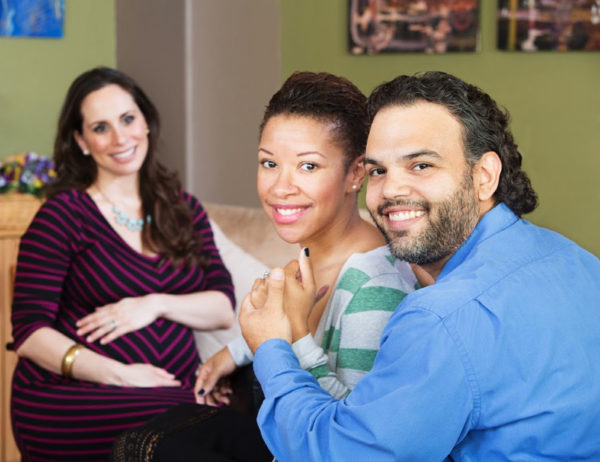
A successful surrogacy
Here are some tips for helping create a successful surrogacy process for all parties:
- Do your research and speak to a lawyer for advice and drawing up legal agreements.
- Be aware of all the financial costs involved – for example, IVF expenses for surrogacy are NOT covered by Medicare and you may need to factor in an obstetrician plus many other medical expenses which can be costly.
- Agree on what expenses will be covered before going ahead – including things such as pregnancy massage.
- Ensure that all parties understand the process thoroughly, have realistic expectations about the outcomes and timings involved and are prepared for the emotions that may arise.
- Check that everyone involved is healthy physically and emotionally, and has no prior criminal background.
- Communicate clearly and openly at all times, however, establish boundaries where appropriate.
- Discuss the birth plan and post-birth arrangements before delivery.
- Talk to other surrogates or parents who used surrogates, to get an inside view and help you decide if it’s for you.
If you’re interested in finding or becoming a gestational carrier, more information and resources can be found on surrogacy support organisation Surrogacy Australia.
Have you been or used a surrogate before? Get in touch with us via our Facebook page if you’d like to share your story.


